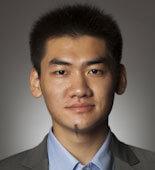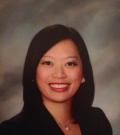
2. Law School/Graduating Month and Year: Cornell Law School; May 2016
3. Undergrad school and major, when did you graduate? Renmin University of China, Law School; Bachelor of Law; July 2013
4. Undergrad awards, majors, internships, associations?
Awards:
Second Class Scholarship of RUC (Top 10%);
Grand Prize in Beijing "Challenge Cup" Thesis Contest.
- Ministry of Justice, P.R. China
a) Intern, Department of Administrative Review, Winter 2012
b) Drafted administrative decision dismissing or granting application for judicial re-authentication according to procedural rules. - Study of the Economic Tomb Policy in Ningbo City
a) Project Leader, Winter 2011
b) Led the team to research and analyze legislative history of Economic Tomb Policy and underlying social policy
5. What are the law school activities that you participate in?
Activities of APALSA ("Asian Pacific American Law Student Association")
6. Law Review Membership Details if any:
Associate Editor, Cornell Journal of Law and Public Policy
7. Have you participated in any internship program? If yes, give details. How did you positively contribute to the ongoing work, meaning how did your presence make a difference to the work? What was the role you played?
- The State Council of P.R. China's Legislation Regulating Testing Laboratories
a) Research Assistant, July 2014 till present
b) Drafted report summarizing regulation and accreditation of testing laboratories in the U.S.A. During this experience, I used my research skill to help one group of the State Council to find the U.S. regulations and legislation materials that they wanted. They would not have been able to find this information without me because few lawyers or government officers know how to do legal research through WestLaw or other databases. Moreover, since U.S. common laws, statutes and regulations are different from Chinese laws, they would not be able to understand those materials without my help. - Jun He LLP, Beijing, P.R. China
a) Summer Associate, Dispute Resolution Group, Summer 2014
b) Drafted memoranda on topics including Italian judgment's extraterritorial effect, commercial bribery (FCPA), and administrative laws and regulations. Assisted in drafting "Getting the Deal Through: Government Investigation 2015." In addition to the knowledge that I presented to the law firm, I also helped lawyers in Jun he to understand why U.S. lawyers are concerned with certain issues, and also clarified some misunderstandings that result from the difference between different legal systems. I contributed to the cooperation between Jun he LLP, a Chinese law firm, and U.S. law firms.
8. What do you think are your key accomplishments or achievements?
My key accomplishments are my decision to pursue a J.D. and my transition to U.S. law school.
On one hand, since I am not a native speaker, working on a JD and studying law in the U.S. were extraordinarily difficult for me, largely because of the language. However, I overcame these difficulties by increasing my efforts and by making my learning more efficient. More importantly, believing that excellence is a habit rather than gift, I use all these challenges to develop my never-give-up spirit.
On the other hand, these experiences will be really beneficial for me in the future. First, many Chinese are going outbound and want to participate in the global capital market. For example, Alibaba was recently listed in NYSE. My diverse background and knowledge of both Chinese law and U.S. law will be very helpful. Second, with my never-give-up spirit, I will always be optimistic and active in finding solutions to challenges.
9. Why did you go into the law?
Law is a profession where your knowledge and analysis by itself can make a difference and is a place where mental work is deeply appreciated. I talked with the lawyer of my father once. She told me that in the legal profession, the more knowledgeable you are, the better you are. I really love learning and analyzing. I think it is really wonderful that I can succeed simply by learning and analyzing. So I chose law as my career.
10. What are the key strengths and skills that you would like to leverage upon to advance your career goals?
My key strength is my diversity and my entrepreneurial spirit. My diversity includes my Chinese background and my understanding of Chinese law (I am admitted to the bar in China). Moreover, I love to try new things, and I am not afraid of challenges in my future, which is witnessed by my transition to Cornell Law School, a literally whole new world to me.
These two are the key because they are most useful for my future. The future, by definition, is unknown. My diversity gave me a new perspective to help me understand things, including possible issues involving Chinese law or what a client may need. Meanwhile, my entrepreneurial spirit helps me to keep calm before any new challenges and discover solutions. So I believe these two inner qualities are my key strengths.
11. What makes you stand out from your peers?
My knowledge of Chinese law. This knowledge would be really useful, even for a practice in the U.S., because many Chinese firms want to raise capital in the U.S. Chinese laws are different, and Chinese Culture is different, and having knowledge about both makes me stand out from my peers.
12. Are there any weaknesses that you would like to work on?
My English is my weakness. Writing skills and oral skills are core to a successful legal practice. I am not a native English speaker. So, during this 2014 Fall semester, I chose an East Asian seminar, during which I was required to write three notes and revise each of them three times. For the next semester, I will use the other resources that Cornell University provides, in order to further improve my English.
13. Would you like to share with us your aims and aspirations?
I want to be a lawyer specializing in cross-border transactions. This is my ultimate goal.
14. Have you faced any obstacles in your life? Please describe? How did you get through the obstacle?
One obstacle would be life in U.S. At first, I could hardly understand what people say at Subway. When I ordered a sandwich, they asked me what kind of bread I wanted. After several repetitions, I finally understood their meaning, but I still did not know how to say the bread I wanted. These are the kinds of obstacles presented to me by language.
I pass through these obstacles by talking to others. The key in pushing myself to communicate is to keep myself optimistic. Of course, I am always getting embarrassed due to my English. However, I always tell myself "Hey, why am I getting embarrassed? Why should I worry?" So, by keeping this attitude, I talk with different people and continue to become better at English.
15. Would you like to share with us your hobbies, personal interests?
I like reading and tennis. But Cornell is always in winter; I hardly find time to play tennis.
16. Have you traveled? Where? Most influential traveling experience?
My most influential travelling experience was my trip to Xinjiang province of China. There, I visited the TaklaMakan desert, which is so huge. Being there, I was surrounded by desert. I visited there because my parents were working for an oil/gas production platform there. It made me realize that I am small compared to the whole world. This means that all obstacles, challenges or even failures that I go through are nothing big. On the other, if people could build an oil/gas production platform, and overcome challenges presented by the desert and nature, I have no excuse not to face my challenges and overcome them.
17. Did you grow up in a small house? Brothers? Sisters? Proud parent?
I grow up in a small house, and I am the only child, which is the norm in China due to the birth control policy. However, my uncle and aunt lived in the same city. So, basically, I grew up with cousins. Since I was the oldest one of them, I would take care of them when my aunt or uncle were busy.
The experience of babysitting helped me develop my patience. Kids are cute, but they may be also really noisy and a lot of trouble, especially considering that they do not understand everything. This requires a person to be patient with their mistakes. The patience that I developed will help me to be a good lawyer in the future. I think of future clients as just babies in regard to the law.
18. Favorite Quote?
Life is good.
19. Where do you derive your confidence?
I derive my confidence from challenges that I overcome.
20. What are the areas of law you hope to practice?
I hope to practice mainly transactions, especially capital market, M&A and corporate law.




